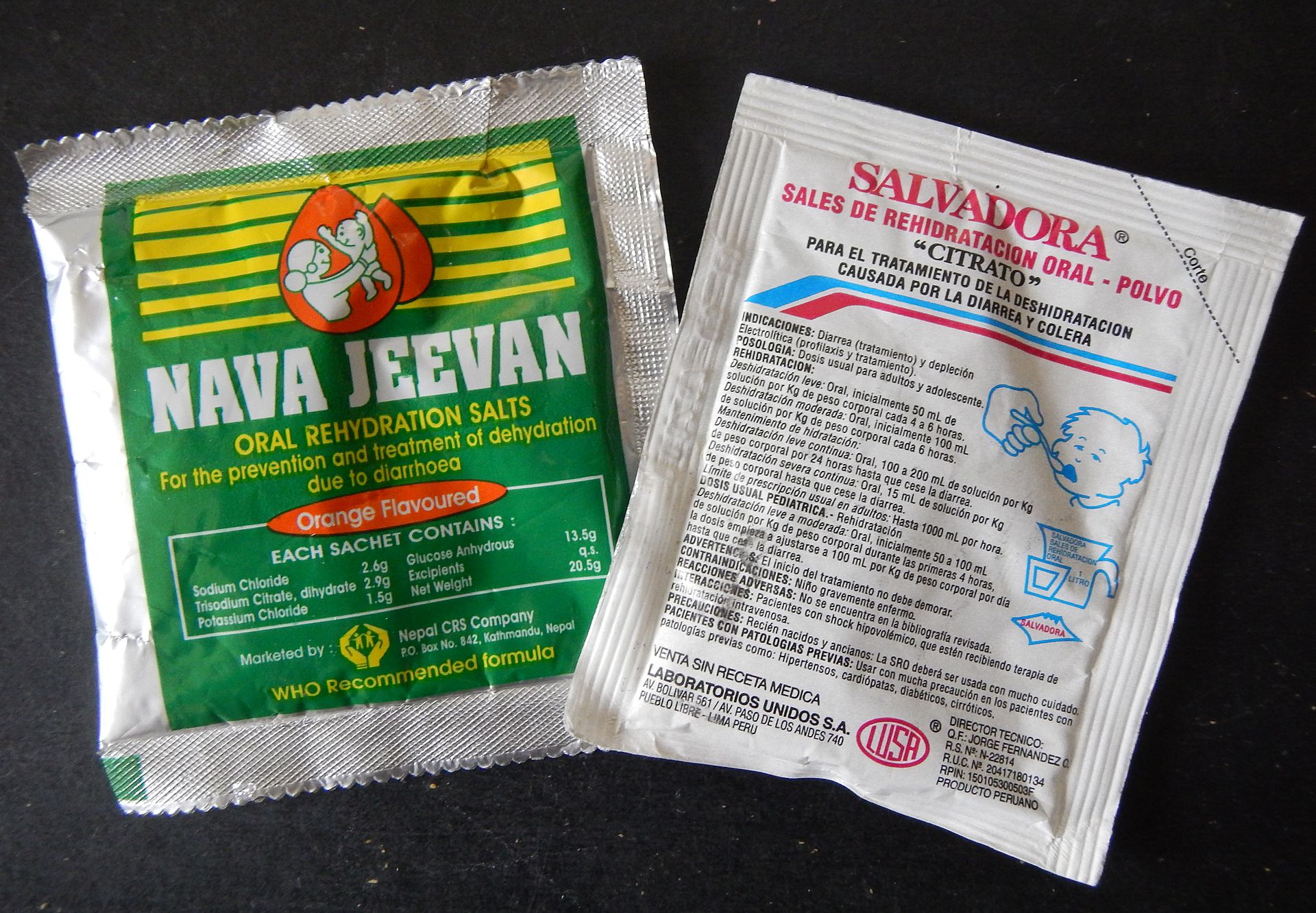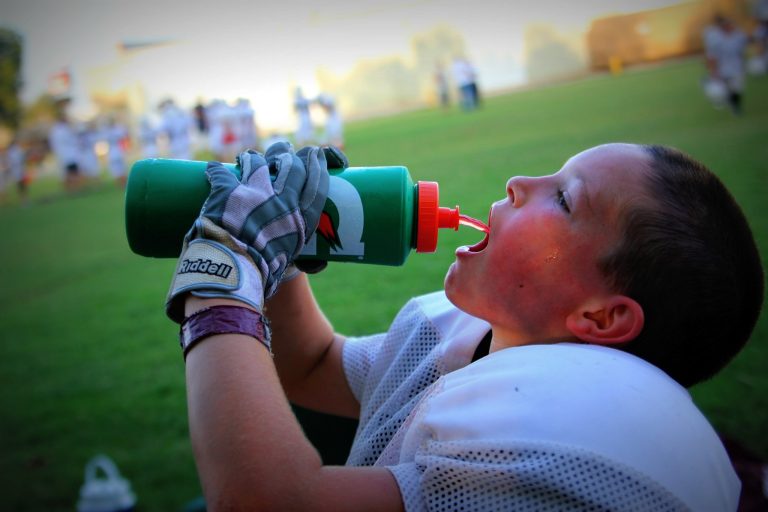Sports drinks have become key allies for high-performance athletes. Offering a wide selection of enticing flavors — like “arctic blitz” and “mountain berry blast” — eye-catching colors and added vitamins, these drinks are designed to replenish the body after strenuous physical activity.
But are sports drinks effective? Do our bodies really need them to perform well? Are they as safe to drink as companies and the media advise?
The marvel of water with sugar and salt
The effectiveness of sports drinks is based on the ground-breaking discovery that a mix of sodium and potassium in water can optimize the absorption of fluid in the intestines, allowing body fluids to be replenished quickly.
Not only was this discovery important in the sports field but also in the treatment of serious health conditions. In 1980, when diarrhea was the leading cause of infant mortality — with some 4.6 million deaths per year — the use of simple packets of sugar and salt added to water made oral rehydration possible, saving the lives of numerous children who were losing electrolytes at an alarming rate.

This opened the door for commercial companies to market sweetened salt water as a new product designed to enable athletes to quickly recover water and electrolytes lost through sweat. Consumption of sports drinks was endorsed by sports organizations on the grounds that dehydration could impair performance and that the electrolytes in rehydration beverages were essential, and the consumption of sports drinks soon became widespread.
Does dehydration hinder physical performance?
Success
You are now signed up for our newsletter
Success
Check your email to complete sign up
In 1996, the American College of Sports Medicine (ACSM) began promoting the concept that athletes should drink “as much as tolerable.” This, along with the popular statement “don’t wait until you feel thirsty,” established the guidelines for proper hydration of athletes during exercise.
Unfortunately, this resulted in numerous athletes experiencing the effects of overhydration with sports drinks or water, often leading to a condition called “exercise-associated hyponatremia” (EAH) — neurological problems due to excessive amounts of water in the body — and its associated encephalopathy — damage to the brain.
As the number of EAH cases began to increase, some resulting in death, the issue became a cause for concern among the public, prompting the global sports medicine community to reevaluate the promotion of overdrinking.
When studying the relationship between dehydration and physical performance, researchers found no correlation between levels of dehydration and the finishing times of triathletes at a marathon, and what’s more, some of the athletes that recorded the fastest times were among those who had lost the most water.
In contrast to what was promoted by the ACSM in 1996, there was now evidence that mild levels of dehydration did not impair performance in athletes, and that neither prehydration nor hydration during exercise was necessary for the body to maintain adequate hydration — even during prolonged exercise in hot environmental conditions.
Relying on body cues rather than external advice
As one of the mechanisms used by our organism to maintain balance, thirst is triggered when the body detects lack of fluids or an increase in the concentration of osmolytes, such as sodium.
Disregarding former concepts that deemed thirst as an unreliable indicator, Mitchell Rosner, MD, a kidney specialist at the University of Virginia School of Medicine, recommends using our thirst as a guide: “If you drink when thirsty, you will not become hyponatremic and you will not suffer from significant dehydration.”

Surprisingly, the essential role that thirst plays in body balance was already known in 1991. But why were these findings ignored and why did overhydration get promoted instead? Studies have concluded that it was commercial interests that delayed the acknowledgement of this information.
What about plain water?
When it comes to hydration, water is the universal thirst quencher. Offering no added calories, sugar, caffeine, or other additives, it is the purest form of hydration. Research shows water doing the job just as well or better than its competitors like sports drinks, tea and soda.
Sports drinks are mainly composed of carbs, electrolytes and water. If they are consumed without performing long or intense exercise for at least 60 minutes, the calories are accumulated rather than being burnt.
According to the Harvard T.H. Chan School of Public Health, sports drinks account for about 26% of total sugar-sweetened beverage intake in adolescents. Thus, in the absence of vigorous physical activity, consumption of these beverages in large quantities can increase the risk of overweight, type 2 diabetes and dental caries, among other conditions.
Current ACSM guidelines refrain from promoting overhydration, but still consider sports drinks preferable to water. In reviewing the ACSM statement, Dr. Michael Greger, MD, FACLM, discovered that the Gatorade Sports Science Institute and The Coca-Cola Company were among the main organizations that provided financial support for the ACSM report.
While sports drinks can improve stamina and performance for active individuals and athletes, their use is not necessary for normal bodily functions. We would do well to take external advice with a grain of salt, and trust more in the innate wisdom that our body harbors.
















